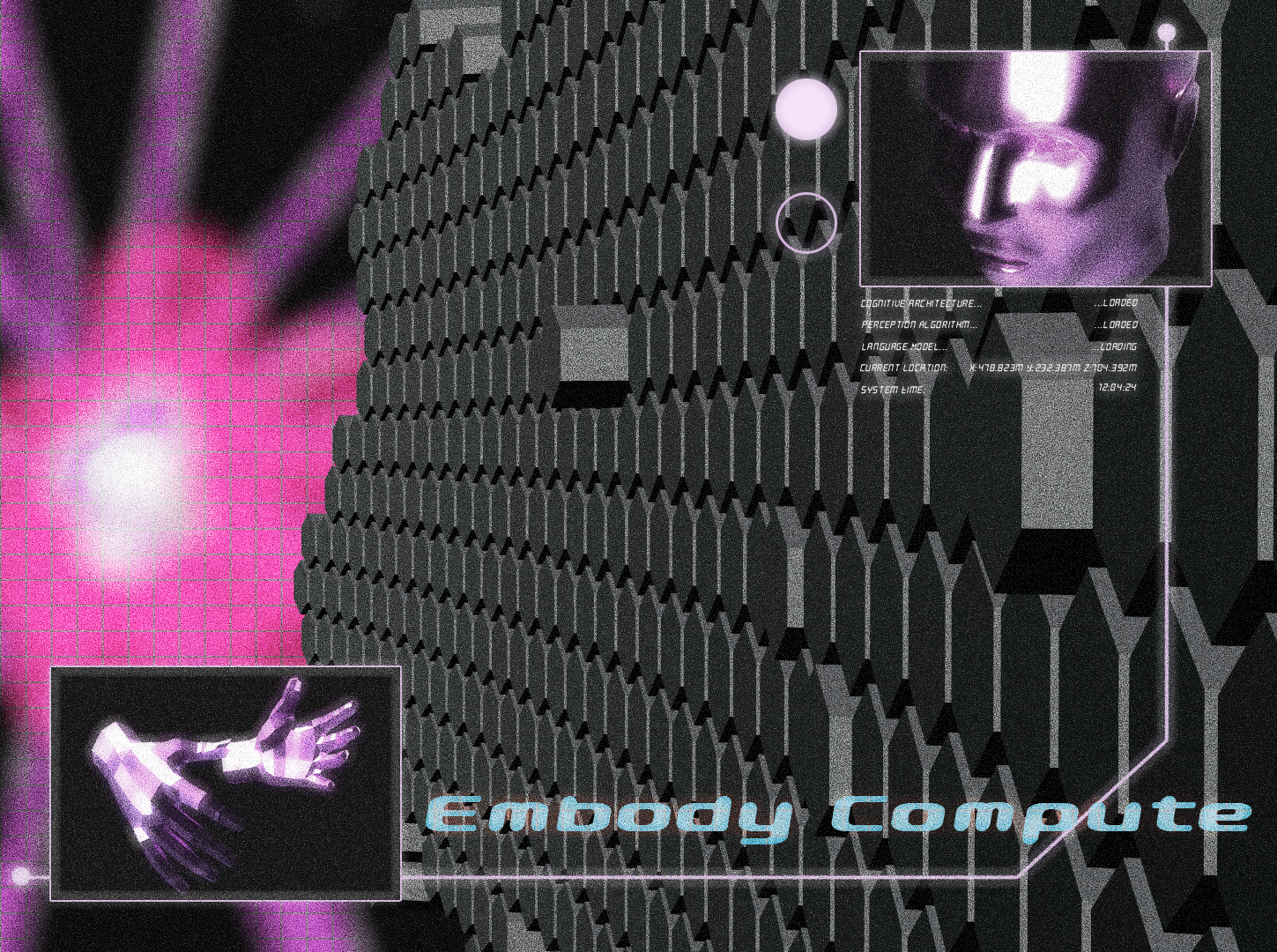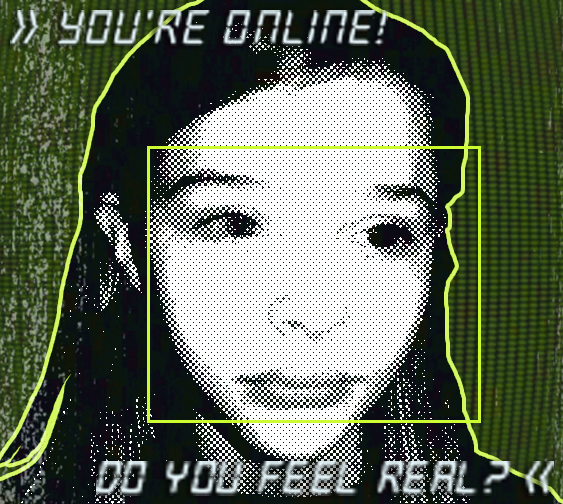Chapter 1: Machines, the Development of Intelligence, and the Ambiguation of the Human Body

Evolution of consciousness
There is always a self-referential nature to a creator’s creation. Humans are created in the image of God, and humans have created machines whose systems almost always reference natural systems that have been designed by evolution. The design of computers and Ai, much resembles the architecture of our own brains, e.g. neural networks. And this is not by accident. Natural selection has this amazing capacity to find the most efficient means of sustaining a species, as that is its literal function in evolution. The more efficient the species can store, restore, and convert energy, the more likely it is to survive. As a species secures more efficient ways using its energy within its own biology, the species then begins to secure psycho-social development, which demands of the species intellect. And thus, intelligence becomes a feature of evolution. If machines wish to be optimally efficient, it only makes sense for them to get inspiration from natural systems.
A feature of intelligence is the ability to abstract from concrete, physical reality. A key part of intelligence within a brain is the ability to store information in symbols, such as numbers in variables, and meanings in pictures. For instance, the ability to assign the number 3 to the variable x, is a feature of intelligence that requires abstraction. “x” can have more than one piece of information assigned to it. For instance, I can say that both 3=x, and that 7=x. The numbers of 3 and 7 express different quantities from one another. However, they can both be compressed into a generalized symbol, that being “x.” This is a basic example of abstraction.
When we use words to structure our sentences, we are unconsciously taking part in the same function. A word is a structure made of symbols that contains a meaning called a “definition.” When we string these words together to create a sentence, we are using a system that allows us to scale up the amount of meaning we can convey. This is why we can have meanings that can scale all the way up into things like books. Books have pages, pages have paragraphs, paragraphs have sentences, sentences have words, and words have letters. This system allows us to continuously build on meanings and impressions, and as we have done this, we have subsequently scaled up our conscious faculties. This system has allowed the species to specify more and more abstract meanings, which over time has produced consciousness, our ability to “make sense of.”
I believe that there is one sole evolutionary purpose, and that is for nature to “make sense of,” and that this mechanism to “make sense of” serves as a transcendental purpose. The system of language accelerates the process of consciousness by allowing one to properly “make sense of” the most subjective experiences, and to convey them in an objective way. The function of intelligence in our ability to build systems has given access to the ability to concretize concepts, to decompress them into specific units of meaning, which over time has collectively resulted in an ability for the species to experience itself outside of physical reality, and into more precedent levels of being, such as the mind. All the while, we use language to make sense of these novel experiences. To make the subjective, objective. To make the abstract, specific. The goal of every species is to directly experience what is true to the highest, most precedent order of being. From biology, to chemistry, to physics, to math, to philosophy, to psychology, we construct a spire from the ground up, to transcend from Earth to sky. As a species, we direct our energy towards increasingly abstract concepts so as to find an ultimate truth, the ultimate first principle, the creator of creation, the moving mover.
In Chapter 11 of Genesis, we reach the story of the tower of babel. It is significant because it prophesied the exact point I am trying to make about language and consciousness. To paraphrase:
4 And they said, Go to, let us build us a city and a tower, whose top may reach unto heaven; and let us make us a name, lest we be scattered abroad upon the face of the whole earth.
5 And the Lord came down to see the city and the tower, which the children of men builded
6 And the Lord said, Behold, the people is one, and they have all one language; and this they begin to do: and now nothing will be restrained from them, which they have imagined to do.
7 Go to, let us go down, and there confound their language, that they may not understand one another's speech.
8 So the Lord scattered them abroad from thence upon the face of all the earth: and they left off to build the city.
9 Therefore is the name of it called Babel; because the Lord did there confound the language of all the earth: and from thence did the Lord scatter them abroad upon the face of all the earth.
In this story, the people of earth were able to construct a tower into heaven by means of being unified by one language. The tower symbolizes consciousness, as the purpose of the tower is to see into heaven. They are able to build this tower through the power of having one unified language. The Lord scatters the people, by creating different languages to keep them from entering heaven. Heaven is in the sky, because it represents a higher principle than that of physical reality.

Machines as the next step in human evolution
Since evolution’s key feature is to optimize the energy utilization of a species, then it would only make sense that if you give a species intelligence, it will inevitably work towards obtaining the resources necessary to take control of the evolutionary process. If we ask ourselves why jobs are being automated away, the answer is pretty obvious. It is advantageous for companies to automate the work required for production, because it costs capital to use human energy. Unlike humans, it is entirely ethical to make a machine work twenty-four hours a day, seven days a week, without pay, often being more reliable and accurate all the while.
But if we were able to automate intelligence itself, if we as individuals no longer had to spend a quantifiably significant portion of our energy processing each and every detail of our environment, if we had all of our bodily necessities met and hadn’t need to pay any energy to receive it, where would our energy turn? This is exactly the most fundamental problem that we are trying to solve as a species. How we can live more optimally, so that we can direct more of our energy towards “making sense of” why we are here in the first place. But we are so caught up in the necessities of life, as we are subjects living in loathsome objects called “bodies.” So much of our energy is spent on simply preserving it. This is what is holding our evolution back as a species. The fact that most of our energy must be spent on physical reality, as opposed to forms of being that exist in higher levels of abstraction.
Now, we have given machines the ability to read language and produce it. But this does not mean that they are “conscious.” Language is just a vehicle for consciousness, it is not the root of it. In order for consciousness to arise, it not only needs to be able to interpret meaning, but it also needs to produce an emotional response to it. This is something that machines will never do, because they are purely matter, and not spirit. When we mend the two however, when the time comes that flesh may include machine, our understanding of what may embody a “spirit,” becomes far more ambiguous.
Unlike machines, humans are both spirit and matter. This is why humans are so conflicted between heaven and earth. We are cast into life with a biological prerogative to “make sense of” existence, and yet humanity is made of mortal matter and must contend with material reality if they are to continue to embody their spirit. Humanity is always in contention with the ambiguity between the object that is our bodies and the subject that has possession of it, and this is the source of all our madness. Technology inflates this ambiguity within individuals, as the energy required for physical functioning gets outsourced to electronics and machines. Instead of walking or biking somewhere, we preserve energy by taking our car. Instead of expending energy by cultivating crops, we go to a supermarket. The whole point of technology is to remove the bodily element so as to preserve energy. Through automation and computation, the spatial dimensions humanity has been subjected to increasingly becomes less confining. So where else can we direct our newfound surplus of energy besides inwards, if the demands of the external world are no longer there?
The fact that western societies, who’ve historically gained more biological security through liberal systems like capitalism, are experiencing a “mental health crisis,” is not a coincidence. It is literally the next phase of human development. Once there exists less of an energy demand on the human body, there is now suddenly more energy that can be partitioned to both the mind and spirit. And as we begin to experience it, an awareness gets built of all its issues and deficits. The human condition will increasingly shift inwards, as higher forms of truth can be found there, and since more and more of the external demands of mundane life have become solved. In a general sense, as a society develops, it collectively begins to achieve awareness of more and more abstract forms of truth. They are able to “make sense of” increasingly complex concepts, and further specify them into directly experienceable phenomena. The reason we are experiencing a crisis of mental health, is because we are just now securing the position required for us to become aware of such a crisis.
The byproduct of the biological security we have obtained, is that we are becoming alienated from our own bodies. As we set our sights on heaven, we are beginning to lose Earth. The less demand that is exerted on the physical extension of ourselves, the less relevant it becomes to our experience, and the more ambiguity that gets created between the object and the subject. Phenomenological experiences like gender dysphoria are supreme examples of this. The whole premise of gender dysphoria is that the subject does not align with the object, the mind does not “fit” with the body it inhabits. The distinction between Sex and Gender is an example of how developed societies begin to expand experience past what is physical, and into what is spiritual and mental in nature. We are collectively beginning to identify ourselves with phenomena that are exclusively mental, and then decompressing that phenomena into physical space so that it may be experienced through the senses.
The idea that machines may replace us is of only physical concern. If you are a physicalist, as in you believe everything can be explained through exclusively physical phenomena, then it would be reasonable to have an existential concern over the rise of machines. However, if you believe that there does indeed exist a non-material element to our existence, that what we experience is confined by Euclid’s planes but not defined by them, that there does indeed exist a spiritual element to your own reality, then the overwhelming power of machines should not be of existential concern. Rather, it should liberate you to know that although what “you” are made of will almost certainly change in unprecedented ways, the “you” that will be experienced will be in a most purer form, if we are able to overcome the newfound problems that technology presents us. If there exists no need to dedicate any energy to your cumbersome human body, then all of your energy can be directed towards mapping the microcosm of the human soul, where more eternal and more precedent truths may lie. It is certain that novel forms of unimaginable suffering may be permitted to you, but insofar that your nature can overcome it, then it should also be reasonable to know that you will be permitted novel and unimaginable forms of fulfillment.


